Italian President Mattarella to Open Rimini Meeting
Presentation of the Appointment that Returns in Attendance from August 20-25
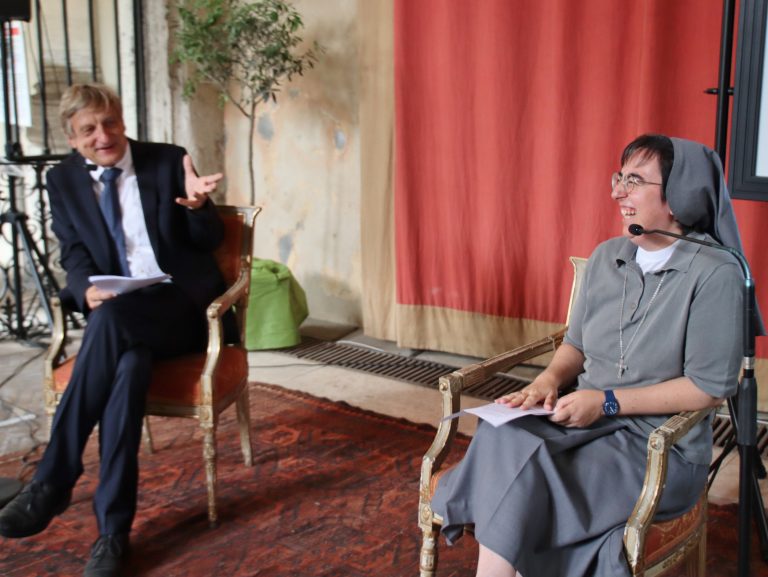
Italian President Mattarella will open the Rimini Meeting in August.
“The courage to say I,” or to start from one’s own responsibilities to be able to build a shared us, is the theme, taken from a quotation of Danish philosopher Kierkegaard, of the 42nd edition of the Rimini Meeting, which will be held in attendance with all the precautions of the case, from August 20-25 at the Fair of the Romagna city. The Meeting, which will be opened by the President of the Italian Republic, Sergio Mattarella, was presented today in Italy’s Embassy to the Holy See.
Dialogue Without Fear
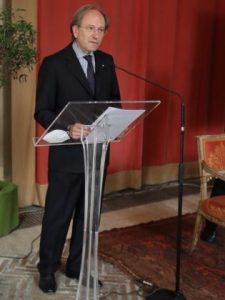
To establish a dialogue without fear of the differences” so that “the different word indicates the overcoming of the boundary that leads from self to us, essential to restart altogether,” said in his greeting Ambassador Pietro Sebastiani. “Not only do we have to have courage, to go forward, but we must do so after assuming our responsibilities. The time for sitting is over,” recalled the diplomat, stressing how Laudato Si’ and the 2013 Agenda push to solicit greater responsibilities in the care of the common home and a “contribution to the common good in the light of truth” in which “the subject of education “ is “crucial.”
The Participants
Bernhard Scholz, President of the Foundation of the Meeting for Friendship Among Peoples, introduced the conversation with three guests of the presentation: Sister Alessandra Smerilli, Under-Secretary of the Dicastery for the Service of Integral Human Development; Marco Sesana, Country Manager and CEO Generali Italia and Global Business Lines, and Maria Cristina Messa, Minister for the University.
“To have the ‘courage to say I’ means to assume responsibility, creative commitment and care of dialogue even in difficult and dramatic moments. This courage, which stays faithful to one’s desire of good for oneself and for all is the true antidote to individualism and to collectivism. It is a question of rediscovering the original link between the ‘I’ and the ‘us’,” said Scholz. “I hope the Meeting will be able to contribute to a recovery that puts at the center the future of the young generations. We will discuss from multiple angles the Recovery Fund that not by chance is called more appropriately Next Generation EU and, above all, we will propose various meetings centered on education, formation and the world of work.”
New Vision
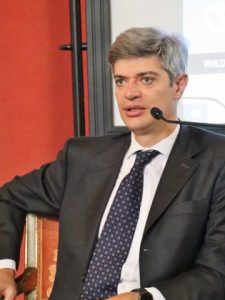
Present, not by chance, was one of the youngest Italian managing directors: “In this new context we are experiencing unprecedented changes,” said Marco Sesana, “that render necessary a vision of development through two guidelines: sustainability and digitalization. For general sustainability it is an intentional choice: it means to project, develop and measure one’s business in relation to the great challenges to be a transformative, generative business that has impact on society and on the planet. Sustainability is inserted also in the strategic games of the forthcoming years, which will determine the capacity of businesses and States to innovate. A challenge that as institutions and businesses we must pick up, to be engines of change and of sustainable development for the community and the country.”
Logic of Balance
Sister Alessandra Smerilli talked about the ecological transition, recalling two verbs that the Pope has at heart “Protect and Cultivate. It is a question of transforming the earth, of implementing what creativity suggests to us in dealings with the earth, with people, and relations. If we apply these principles to the economy we realize, first of all, that we must move from a logic of maximization to a logic of balance, from a logic of a brief period to one of medium long-term.”
“Separate sectors don’t exist; if we don’t understand this we won’t be able to do anything. In order for the economy to be respectful of people, of relations, and of the earth, all the system’s actors must do their part. It means we must have to change the system. All this is possible; we are speaking about ecological conversion: the priority is to succeed in coming together and understanding that the courage to say no is broken down in businesses, in laboratories, in States, which have a fundamental role, at the level of international organizations. I’m thinking of the EU. (It’s a time full of uncertainties but a time of enormous hope,” added Sister Smerilli.
Reforms and Investments
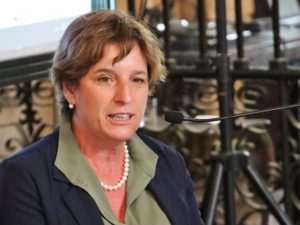
Finally, Minister Messa stressed that in “a future where uncertainty and unpredictability will be ever more often our street companions, the role of the University becomes even more fundamental in accompanying young people to learn a method, which enables them to remain solid and to find solutions also in complex situations as that which we are still going through. If the University must accompany young people, we have the task today to improve the field and the rules at our disposition: the investments foreseen by the PNRR are consistent and we must use them well, but to change our step, it will be even more important to conclude as soon as possible the courses of reform that, together with the Parliament, we have set in motion.”
The Role of Research
The Minister pointed out that there must be a balance between generalized formation, which represents the necessary background for all, and specific formation. She then reflected on the need to invest in research, on one hand with individual tenders and, on the other, with the importance to “make a system, creating national networks to compete better and assess local situations that already work together.” As for the return of “brains,” Messa stressed that funds “aren’t enough, it’s necessary to reform the system because young people don’t know what will become of them, of their careers and reinforce the autonomy of research and the infrastructures of which they are in need.”
The Program
In regard to the Meeting’s program that, as usual, is very rich of appointments, two novelties are pointed out. The first is that the great evening events will move to the center of Rimini, beginning with Uto Ughi’s opening concert. The second is the closing with a contest to which young musicians have been invited on the theme of the Meeting. One hundred thirty-seven artists took part, and three finalists chosen by the jury will hold the conclusive concert. Two thousand volunteers have already put themselves at the disposition of the Meeting, inspired by the vision of Communion and Liberation. And after last year’s streaming success, especially in Latin America, the experience will be repeated with live coverage in several languages, among them Spanish.
Translation by Virginia M. Forrester
Related
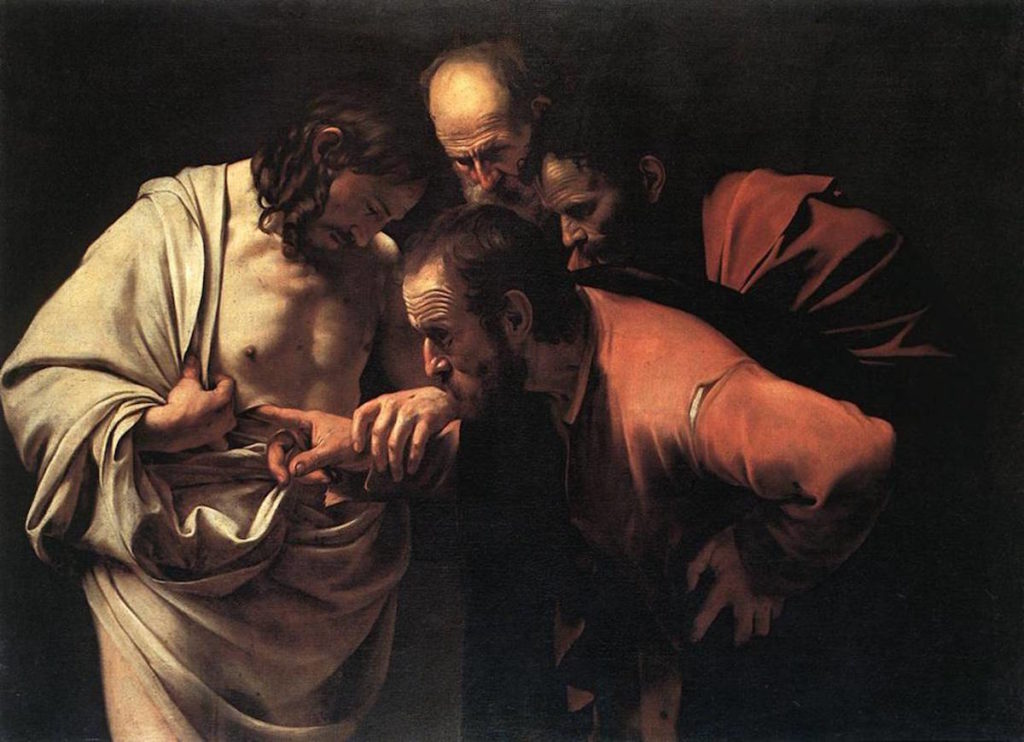
Saint Thomas the Apostle: In the face of doubts, faith
Eugenio Bujalance
03 July, 2025
5 min

The Barbastro-Monzón Diocese Submits a Proposal Regarding the Torreciudad Complex to the Holy See
Exaudi Staff
01 July, 2025
3 min

The Only St. Andrew Bobola Shrine in the U.S. with the Pope’s Blessing
Exaudi Staff
01 July, 2025
3 min
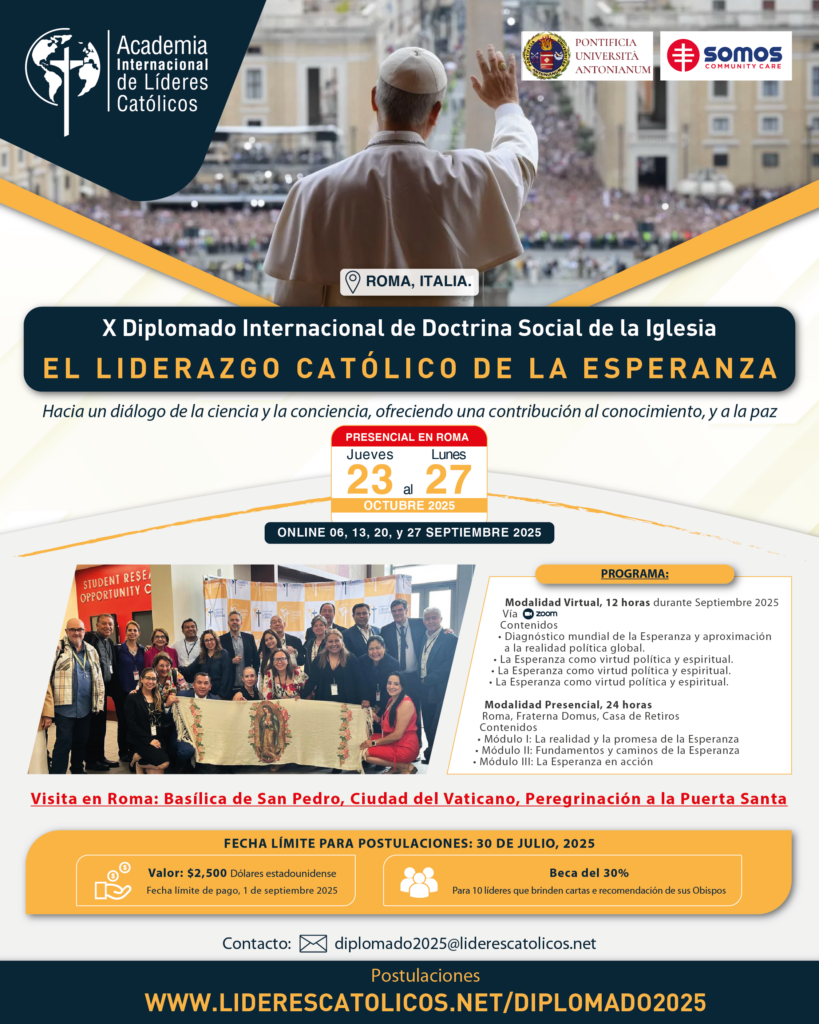
Formation and Faith in Jubilee 2025: The International Academy of Catholic Leaders and Antonianum University Announce the 10th International Diploma Program in Rome
Academia de Líderes Católicos
30 June, 2025
2 min
 (EN)
(EN)
 (ES)
(ES)
 (IT)
(IT)

